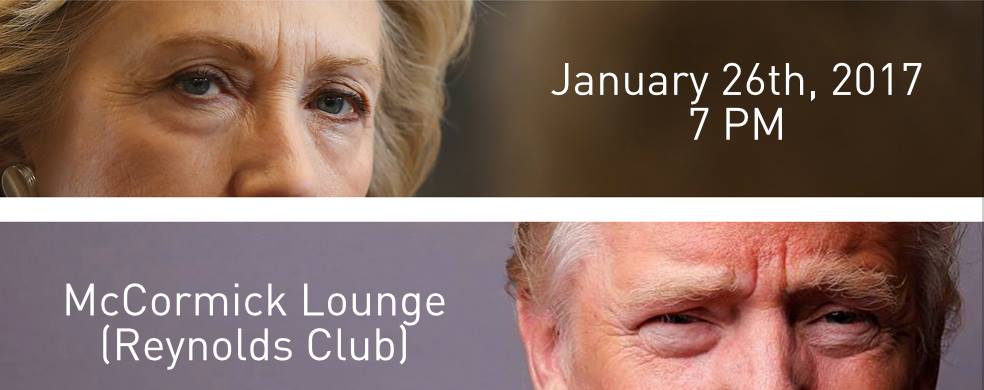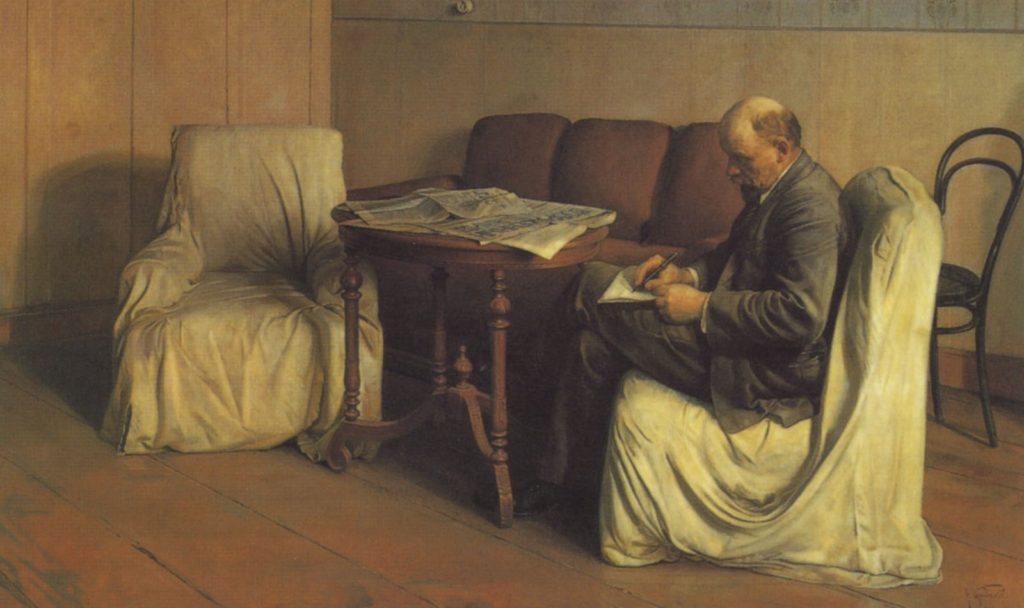A Panel Discussion
26 January 2017 at 7 PM
University of Chicago
Reynolds Club (McCormick Lounge)
5706 S University Ave
Chicago IL 60637
Featuring:
Jerry Harris, socialist & activist
Representative from the Red Party (TBD)
and more!
Leftists today lament the strength of neoliberal hegemony. The use of the word “hegemony” underlines the ideological dimension of the neoliberal order. It suggests that mass ideological legitimacy -- and not the triumph of pure force or of back-door machinations -- have made neoliberalism a political possibility. What were the ideological shifts in political and social consciousness that provided the grounds for this neoliberal hegemony? What role did the Left play in this historical transformation of political consciousness? A consideration of the history of the New Left and its specific demands can help partially illuminate these issues.
The New Left pointed to the difference in standards of living between the ‘first’ and ‘third’ worlds and called for greater global equality; it showed how society’s institutions were dominated and led by straight white men and called for greater diversity; and it expressed widespread disenchantment with the key features of Fordism—a bureaucratic labor movement, conformist universities , alienated “company men” under full employment, etc.—and called for a transition away from this administered society. Neoliberalism has delivered on all three counts: there appears to be greater equality between the first and third worlds, greater diversity within society’s institutions, and seemingly more individuality and unpredictability in social life.
Freedom, once a rallying cry of the Left, is now the stated ideology of the neoliberal program of upward redistribution of wealth. Indeed, the past decades have seen stagnating wages and a widening income disparity, even though women, LGBT people, people of color, and others who once faced legally enforced, identity-based social exclusion now appear to be more “free” than they were during the pre-neoliberal period of high Fordism. These two aspects of neoliberalism—its identitarian inclusiveness and its anti-working class agenda—appear to go hand-in-hand. Today, discontentment with the neoliberal order are expressed in terms of identity-based political constituencies, e.g., “women,” “labor,” “the black community”, integrated “democratically” as objects of the state (in the US, primarily through the Democratic Party). This appeal however, remains no less authoritarian for all of its apparent liberalism.
Although the politics of the New Left has achieved a dubious, partial success in the neoliberal era, today we are perhaps further than ever from the goal of global socialism. In its passing from the 1960s and through the 1980s, the New Left became institutionalized into two semi-autonomous camps, the “academic left” and the “activist left” –– the devolution of the ‘Marxist left’ into activist organizations in the 1980s was part of this transformation. While these camps continue to express a discontent with the status quo, they lack the mass appeal and political opportunity of the 1960s. 2016 has manifested the crisis of Neoliberalism in an acute manner with such phenomena as Brexit and the US Elections. In the 2016 U.S. presidential elections, discontent with neoliberalism expressed itself in the dual form of Donald Trump and Bernie Sanders’ candidacies. Trump ultimately emerged as the more successful of the two, challenging the neoliberal consensus of both parties in a way Sanders did not.
How can we make sense of the Left’s failure in our contemporary moment to lead in the crisis of Neoliberalism? How can we make sense of the success of the Right in its absence? How then, in light of this history, can we imagine a future for the Left? How can the Left rise above the expression of frustrated expectations within neoliberalism to generating the kind of theory and political practice required to challenge capitalism?
Mondays 6.30-9.30 PM
Goldsmiths College, University of London
Room 257, Richard Hoggart Building, Lewisham Way, New Cross
II. Introduction to revolutionary Marxism
Santa Cruz: Thursdays, 5:30pm, Kresge Library/Study Center Rm. 348
University of California, Santa Cruz
1156 High St, Santa Cruz, CA 95064
• required / + recommended reading
Marx and Engels readings pp. from Robert C. Tucker, ed., Marx-Engels Reader (Norton 2nd ed., 1978)
Recommended winter break preliminary readings:
+ Leszek Kolakowski, “The concept of the Left” (1968)
+ Richard Appignanesi and Oscar Zarate / A&Z, Introducing Lenin and the Russian Revolution / Lenin for Beginners (1977)
+ Sebastian Haffner, Failure of a Revolution: Germany 1918–19 (1968)
+ Tariq Ali and Phil Evans, Introducing Trotsky and Marxism / Trotsky for Beginners (1980)
+ James Joll, The Second International 1889–1914 (1966)
+ Edmund Wilson, To the Finland Station: A Study in the Writing and Acting of History (1940), Part II. Ch. (1–4,) 5–10, 12–16; Part III. Ch. 1–6
Winter 2017
I. What is the "Left?" -- What is "Marxism?"
Week 11. What is Marxism? VI. Class consciousness | Jan. 12, 2017
• Lukács, Original Preface (1922), “What is Orthodox Marxism?” (1919), “Class Consciousness” (1920), History and Class Consciousness (1923)
+ Marx, Preface to the First German Edition and Afterword to the Second German Edition (1873) of Capital (1867), pp. 294–298, 299–302
Week 12. What is Marxism? VII. Ends of philosophy | Jan. 19, 2017
• Korsch, “Marxism and philosophy” (1923)
+ Marx, To make the world philosophical (from Marx's dissertation, 1839–41), pp. 9–11
+ Marx, For the ruthless criticism of everything existing (letter to Arnold Ruge, September 1843), pp. 12–15
+ Marx, "Theses on Feuerbach" (1845), pp. 143–145
Winter–Spring 2017
II. Introduction to revolutionary Marxism
Week 13. Revolutionary leadership | Jan. 26, 2017
• Rosa Luxemburg, “The Crisis of German Social Democracy” Part 1 (1915)
• J. P. Nettl, “The German Social Democratic Party 1890–1914 as a Political Model” (1965)
• Cliff Slaughter, “What is Revolutionary Leadership?” (1960)
Week 14. Reform or revolution? | Feb. 2, 2017
• Luxemburg, Reform or Revolution? (1900/08)
Week 15. Lenin and the vanguard party | Feb. 9, 2017
• Spartacist League, Lenin and the Vanguard Party (1978)
Week 16. What is to be done? | Feb. 16, 2017
• V. I. Lenin, What is to be Done? (1902)
+ Richard Appignanesi and Oscar Zarate / A&Z, Introducing Lenin and the Russian Revolution / Lenin for Beginners (1977)
Week 17. Mass strike and social democracy | Feb. 23, 2017
• Luxemburg, The Mass Strike, the Political Party and the Trade Unions (1906)
+ Luxemburg, "Blanquism and Social Democracy" (1906)
Week 18. Permanent revolution | Mar. 2, 2017
• Leon Trotsky, Results and Prospects (1906)
+ Tariq Ali and Phil Evans, Introducing Trotsky and Marxism / Trotsky for Beginners (1980)
Week 19. State and revolution | Mar. 9, 2017
• Lenin, The State and Revolution (1917)
Week 20. Imperialism | Mar. 16, 2017
• Lenin, Imperialism, the Highest Stage of Capitalism (1916)
+ Lenin, Socialism and War Ch. 1 The principles of socialism and the War of 1914–15 (1915)
Week 21. | Mar. 30, 2017 (spring break)
Week 22. | Apr. 6, 2017 [Platypus international convention]
Week 23. Failure of the revolution | Apr. 13, 2017
• Luxemburg, “What does the Spartacus League Want?” (1918)
• Luxemburg, “On the Spartacus Programme” (1918)
+ Luxemburg, "German Bolshevism" (AKA "The Socialisation of Society") (1918)
+ Luxemburg, “The Russian Tragedy” (1918)
+ Luxemburg, “Order Reigns in Berlin” (1919)
+ Sebastian Haffner, Failure of a Revolution: Germany 1918–19 (1968)
Week 24. Retreat after revolution | Apr. 20, 2017
• Lenin, “Left-Wing” Communism: An Infantile Disorder (1920)
+ Lenin, "Notes of a Publicist" (1922)
Week 25. Dialectic of reification | Apr. 27, 2017
• Lukács, “The Standpoint of the Proletariat” (Part III of “Reification and the Consciousness of the Proletariat,” 1923). Available in three sections from marxists.org: section 1 section 2 section 3
Week 26. Lessons of October | May 4, 2017
• Trotsky, The Lessons of October (1924) [PDF] + Trotsky, "Stalinism and Bolshevism" (1937)
Week 27. Trotskyism | May 11, 2017
+ Trotsky, "To build communist parties and an international anew" (1933)
• Trotsky, The Death Agony of Capitalism and the Tasks of the Fourth International (1938)
+ Trotsky, "Trade unions in the epoch of imperialist decay" (1940)
+ Trotsky, Letter to James Cannon (September 12, 1939)
Week 28. The authoritarian state | May 18, 2017
• Friedrich Pollock, "State Capitalism: Its Possibilities and Limitations" (1941) (note 32 on USSR)
• Max Horkheimer, "The Authoritarian State" (1942)
Week 29. On the concept of history | May 25, 2017
• epigraphs by Louis Menand (on Edmund Wilson) and Peter Preuss (on Nietzsche) on the modern concept of history
+ Charles Baudelaire, from Fusées [Rockets] (1867)
+ Bertolt Brecht, "To posterity" (1939)
+ Walter Benjamin, "To the planetarium" (from One-Way Street, 1928)
+ Benjamin, "Experience and poverty" (1933)
+ Benjamin, Theologico-political fragment (1921/39?)
• Benjamin, "On the Concept of History" (AKA "Theses on the Philosophy of History") (1940) [PDF] • Benjamin, Paralipomena to "On the Concept of History" (1940)
Week 30. Reflections on Marxism | Jun. 1, 2017
• Theodor Adorno, “Reflections on Class Theory” (1942)
• Adorno, “Imaginative Excesses” (1944–47)
+ Adorno, Dedication, "Bequest", "Warning: Not to be Misused" and "Finale", Minima Moralia (1944–47)
+ Horkheimer and Adorno, "Discussion about Theory and Praxis" (AKA "Towards a New Manifesto?") [Deutsch] (1956)
Week 31. Theory and practice | Jun. 8, 2017
+ Adorno, “On Subject and Object” (1969)
• Adorno, “Marginalia to Theory and Praxis” (1969)
• Adorno, “Resignation” (1969)
+ Adorno, “Late Capitalism or Industrial Society?” (AKA “Is Marx Obsolete?”) (1968)
+ Esther Leslie, Introduction to the 1969 Adorno-Marcuse correspondence (1999)
+ Adorno and Herbert Marcuse, correspondence on the German New Left (1969)



